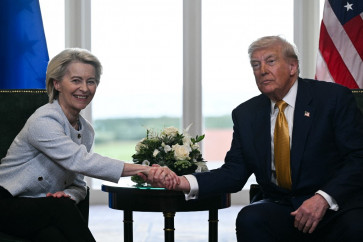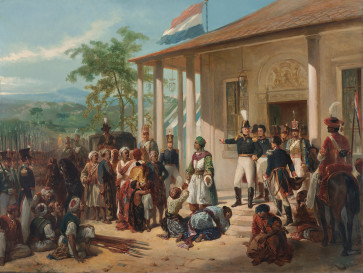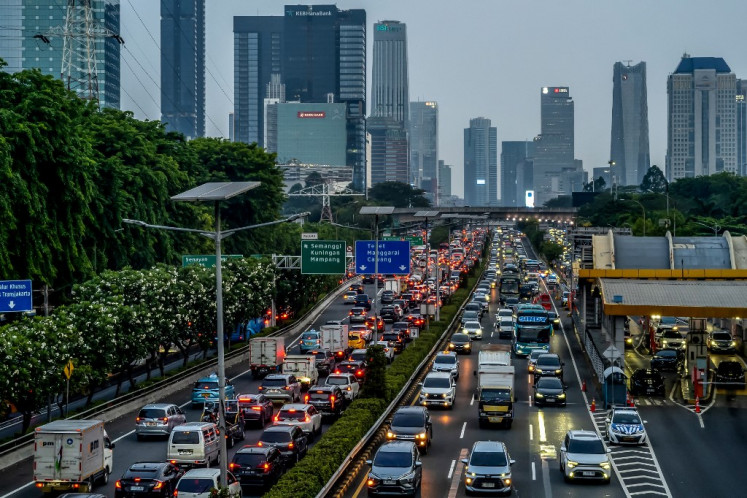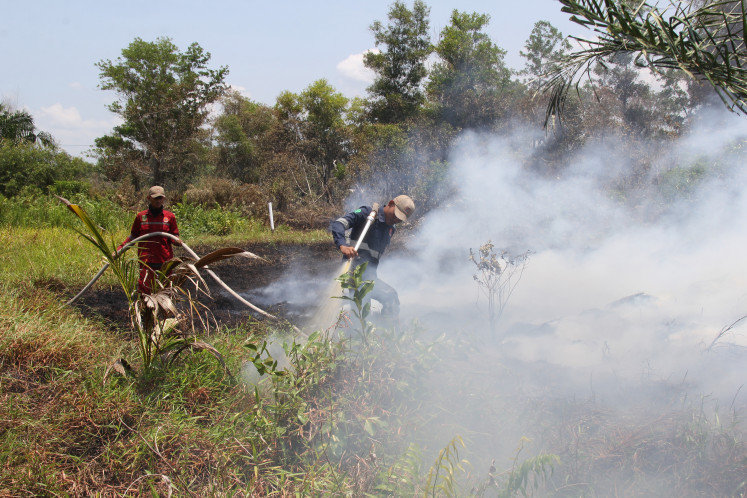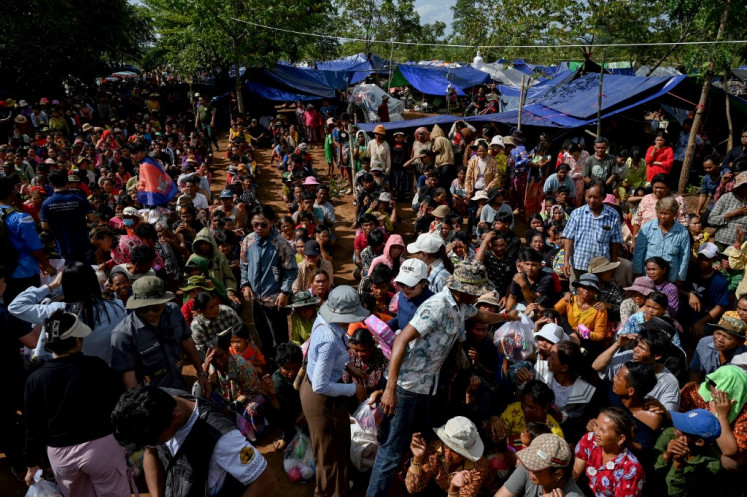Popular Reads
Top Results
Can't find what you're looking for?
View all search resultsPopular Reads
Top Results
Can't find what you're looking for?
View all search resultsRio+20 and the post-2015 development framework
“
Change text size
Gift Premium Articles
to Anyone
“...we shall require a substantially new manner of thinking if humanity is to survive”. (Albert Einstein, 1954)
In a period when unprecedented achievements have been made, is it necessary to have a new manner of thinking?
People are living longer. We are more educated. There is more prosperity. Poverty has begun to decline.
Yet, continuing to thrive on the same system that has fueled growth for decades could further ignite existing social dilemmas, creating new ones, caused by the unrelenting gap between the haves and have-nots. Many previous crises gave a very clear picture of the social discontent that governments had to face. Furthermore, the limits of nature’s threshold to sustain the current patterns of consumption and production are showing signs of wear. One of these signs is climate change.
It is evident that a new manner of thinking is necessary.
The wisest choice for humanity, as the most significant driver of change, is to focus on new pathways. Pathways premised on a multigeneration vision of growth; eradicating poverty; and aiming for equitable, prosperous, and inclusive societies.
The time is right. We have reached a fork in the road in our search for answers to the repeated problems typical of the current growth path. No country looks forward to losing its development gains due to crisis. However, living prosperously in social harmony is something that we all look forward to, for many generations to come.
It is crystal clear that humankind has to set itself on a trajectory that satisfies the imperatives of economic and social progress in an equitable manner, but do it in such a way that we do not liquidate our resources now and leave little or nothing for future generations.
The good news is there are pathways to help us get on the right trajectory.
Currently, the Millennium Development Goals (MDGs), due in 2015, make the most sense and constitute the best option to lay the foundation for prosperity and social justice by halving global poverty and meeting some of the most basic human needs.
With three years left, annual United Nations (UN) reviews say that progress is mixed. Some countries will reach all the goals. Some will not reach them in full, and some others none at all. Furthermore, the promised partnership has not operated in the way that was hoped. There are also many dimensions of poverty that the MDGs do not address. Thus, a process to re-energize the political momentum, which produced the MDGs, was launched by the UN in 2011 to shape a post-2015 framework.
The UN Conference on Sustainable Development (Rio+20), in Rio de Janeiro, Brazil, this coming June, will be a crucial building block for the post-2015 development framework. Rio+20 will set road maps for various global initiatives to inject the three dimensions of sustainable development — economic, social and environment — into the post-2015 development framework.
There are future pathways in relation to the post-2015 development framework to be considered at Rio+20.
Green Economy is one of the themes at Rio. While it has no clear definition, this widely accepted term is understood in the context of sustainable development and poverty eradication. A 10-year plan on sustainable consumption and production, as one element of the green economy discussion, will likely be adopted at Rio+20. One dimension of developing a green economy is via a blue economy. The latter strives to improve the lives of people in coastal areas and to promote a cycle of productivity, sustainability and consumption of ocean resources.
Sustainable Development Governance is another theme at the Rio+20 conference. The government of Indonesia hosted a high-level dialogue on the Institutional Framework for Sustainable Development, in Surakarta last year that discussed among other things the forming of a Sustainable Development Council (SDC) to strengthen the integration and implementation of the three pillars of sustainable development. An SDC, however, should not merely be a watered-down version of the existing UN commission dealing with sustainable development.
The spirit of integration, coordination, coherence and implementation of sustainable development governance at Rio+20 provides a golden opportunity to not only renew international commitment to sustainable development but also to contribute to the broader idea behind UN reforms. The Rio+20 conference offers a window of opportunity to further revitalize the Economic and Social Council (ECOSOC) as the principal UN organ that coordinates issues related to development.
Other topics at the Rio+20 discussions include Sustainable Development Goals (SDGs), which are envisioned to be a set of quantitative, universally accepted time-bound goals responding to economic, social and environmental challenges.
The SDGs are principally designed as sets of goals that are complementary to the MDGs, voluntary, action-oriented, and putting development in the context of both developing and developed countries. A road map for an SDG-negotiation process is also likely to be launched at Rio+20.
The Rio+20 conference will also take a decision on the Framework for Action and Follow Up on broader cross-sectoral issues for future development.
These issues include food security and sustainable agriculture, water, energy, cities, housing, job creation and social inclusion, tourism, oceans, natural disasters, climate change, land degradation and desertification, mountains, chemicals and waste, sustainable consumption and production, trade, education, science and technology development, health and gender equality.
These various global agenda items to be discussed at Rio+20 are indeed crucial for Indonesia.
Rio+20’s successful conclusion will undoubtedly secure Indonesia’s aspiration to be a major economy by 2025. Indonesia needs international support to build on the dividends of its current four-track development approach: pro-poor, pro-job, pro-growth, and pro-environment. Indonesia also needs an enabling global environment to address externalities.
The success of Rio+20 will also give momentum to further advance the sustainable development agenda in our national development policy. Mainstreaming the sustainable development agenda will ensure a strong foundation for 2025 and beyond: to reach solid economic performance and establish social justice while still preserving Indonesia’s rich natural resources.
The global soul-searching for a post-2015 development framework poses us with a challenge to adopt a new manner of thinking. Indonesia, together with other members of the global community — including civil-society organizations and the private sector — shall ensure that the Rio+20 conference will not leave this challenge unmet.
The writer is Ambassador/Permanent Representative of the Republic of Indonesia to the United Nations in New York. The opinions expressed are his own



